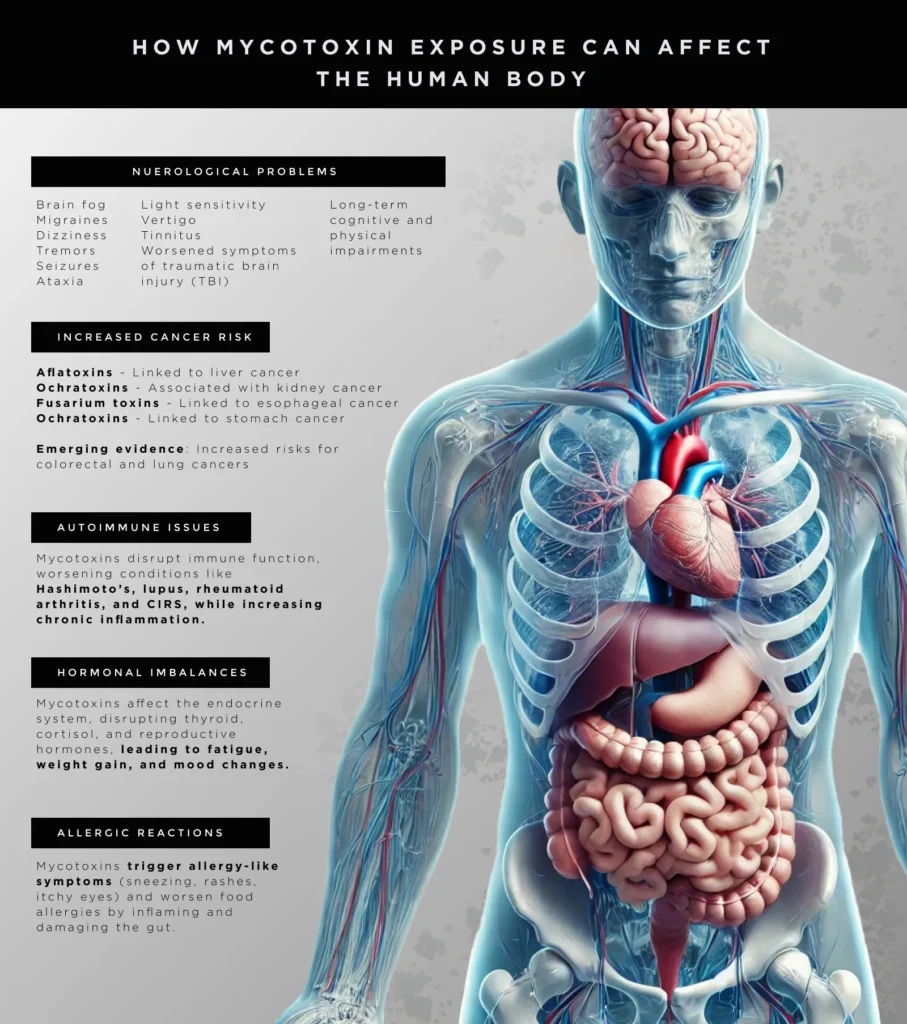
Water damage isn’t just a threat to your property — it’s a serious risk to your health. When water damage isn’t addressed quickly and thoroughly, it creates the perfect environment for mold and bacteria to thrive, leading to long-term health problems for you and your family.
Unfortunately, many homeowners underestimate the hidden dangers of lingering moisture and untreated mold. In this article, we’ll explore the long-term health effects of water damage and mold exposure, as well as how professional remediation can protect both your home and your well-being.
Even after visible water has been removed, moisture often remains trapped in walls, flooring, and other hard-to-reach areas. Over time, this can lead to:
Mold growth in hidden spaces like behind drywall or under flooring
Weakened structural integrity of wood, beams, and foundations
Bacteria and toxins spreading through your home
Pest infestations, as moisture attracts insects and rodents
Mold is one of the most common and hazardous consequences of untreated water damage. It releases spores into the air, which can trigger a range of health issues, especially for individuals with allergies, asthma, or weakened immune systems.
Persistent coughing or wheezing
Sneezing and nasal congestion
Red, itchy, or watery eyes
Headaches and fatigue
Skin irritation
While these symptoms may seem minor at first, continued exposure can lead to serious long-term conditions.
Prolonged exposure to mold can severely impact your health, particularly when toxic black mold is involved.
Over time, mold spores can damage the lungs and airways, leading to chronic bronchitis, worsening asthma, or even permanent lung scarring.
Mold exposure puts constant stress on your immune system, making it harder for your body to fight off other illnesses and infections.
Certain types of mold release mycotoxins, which can affect the nervous system, causing symptoms such as:
Memory problems
Difficulty concentrating
Dizziness or balance issues
Mood swings and anxiety
Long-term exposure can cause extreme allergic reactions, even in people who previously had no allergies. This includes life-threatening conditions like anaphylaxis in rare cases.
Many homeowners attempt to clean mold on their own, but without proper techniques and equipment, this often makes the problem worse. Mold spores can easily spread during improper cleaning, contaminating other areas of your home.
At The Professional Touch, our certified team uses specialized tools, safety gear, and proven methods to:
Identify hidden mold with advanced detection technology
Safely remove contaminated materials
Treat affected areas to prevent regrowth
Improve indoor air quality for a healthier home environment
While professional services are crucial for severe cases, you can take steps to reduce the risk of future mold growth:
Act quickly after any water damage — don’t delay cleanup.
Keep humidity levels in your home below 50%.
Ensure proper ventilation in bathrooms, kitchens, and basements.
Regularly check for plumbing leaks and roof damage.
Schedule regular mold inspections with professionals.
The long-term health effects of water damage and mold exposure are serious and often overlooked. What may start as a small leak or minor flooding can lead to chronic health problems, costly repairs, and decreased property value if left untreated.